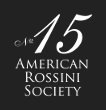A return to the lake with Alberto Zedda

In connection with the Metropolitan Opera’s December 2015 performances of “La Donna del Lago”, we examine some aspects of this masterpiece with the help of an essay by Alberto Zedda.
Somehow, the miracle of this opera seems to elude even many Rossini lovers.
Perhaps some refelctions from Alberto Zedda can help us understand why. He expressed some thoughts on this work at the time of the 2001 performance in Pesaro Italy. Below are some of the excerpts from his essay.
Maestro Zedda writes that this opera “opens up an unknown landscape and develops new themes.”
“It is not an easy opera to revive even for the modern listener” he continues,”even though ( the listener) is familiar with such concepts as ambiguity, abstraction, and metaphor.”
Among other things Maestro Zedda singles out “ the prominent role entrusted to the orchestra
, different from that of the Italian composers who preceded Rossini, and whose only thought was to supply a practical support for the voice.”
The use of the hunting horn ( both off stage and on), the use of the band , the use of the harp, and the curious orchestration ( four clarinets among other things) creates a color and a sound which in itself makes this work unique.
The opening scene where Giacomo /Uberto comes upon Elena really defines the characters. Maestro Zedda observes, ” Radiant with the thoughts of love for her Malcolm, Elena’s simple and enchanting little song ‘Oh mattutini albori’ is pervaded with an elusive and subtle eroticism. When Giacomo asks her for help in finding his way, her reaction is one of unforced naturalness. After bringing him to her home, Elena and Giacomo ‘converse’ politely and their behavior is chaste and friendly, but the music invests their meeting with a sweet enchantment and a sickly tension so that no one is surprised when Giacomo’s heart succumbs to love.” Based on these observations it is safe to say that this is not a skirt-chasing King, nor a flirtatious, feisty young woman as some have unfortunately portrayed them (ed).
Giacomo learns that Elena is the daughter of his enemy and is betrothed to Rodrigo ( whom she does not love ) But, Zedda points out, “the anxious languidness that Giacomo’s presence has aroused in Elena’s childlike femininity gives him a ray of hope.
Elena, believes her restlessness is simply her longing to see Malcom again, and in all innocence she cannot help unconsciously exercising a fatally seductive charm.” The concluding duet between Elena and Giacomo is, in Zedda’s words, “one of Rossini’s prettiest dialogues of love, certainly the most sensual, the most loaded with passion…(Because) Elena’s ecstasy is aimed and Malcom and not at Giacomo, Rossini is free from any necessity to pain a direct encounter between lovers, and so is able to give full reign to his art without too much reserve. “
At this point Rossini has laid the foundation for the two principal characters and he is free to turn his attention to the third, Malcom.
Zedda writes. “ Malcom’s entrance aria ‘Mura felice’ is permeated with melancholy which his loving anxieties seek in vain to camouflage, he tells us of love’s enchantment. Our sympathy with his youthful enthusiasm warns us somehow that his destiny is not of the happiest.” Malcom, Zedda states, “ belongs to Romantic culture and his interpretative powers need to be enough to give emotion and presentiment to a cabaletta, the leading theme of which could easily become banal.. Malcom needs to give weight to Elena’s uncertainty and magnanimity to Giacomo’s renunciation.” It would seem that Malcom has the toughest job in this opera (ed)
Although we are just at the start of La Donna del Lago, this fundamental understanding of the characters has already been presented by Rossini ( and pointed out by Zedda)
Does one need to know these things to enjoy the opera? Certainly not. But hopefully the interpreters are aware and will use this awareness to give us memorable performances of this rarely heard gem. They certainly have the vocal credentials to do so.
